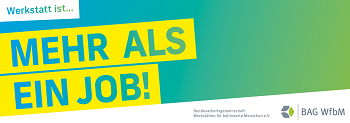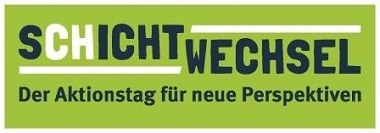The social- and community-based services they offer, such as retail stores, restaurants, integrated workplaces in enterprises of the open labour market, and many others contribute to raising awareness for people with disabilities in society (Article 8).
Among other things, sheltered workshops support and assist access to means of transport, information and communication as well as other facilities and services (Article 9). They support and assist people with disabilities in exercising their legal rights (Article 12). They also enable them to live independently and be integrated in their community (Article 19). With their services of vocational education, they provide access to education for a group of people who often are largely excluded from the recognized vocational education and training systems (Article 24). With work-related measures and leisure activities, workshop services also contribute to participation in cultural life and recreation, leisure and sports (Article 30).
With regard to the above mentioned review of the federal legislation relating to the participation of people with disabilities, German authorities want to improve the services provided by sheltered workshops. Therefore, the legislative amendment focuses on the expansion of person-centred services. Additionally, it sets out that the level of support required by people with disabilities must be determined individually and strengthen their right to freely choose the services they need.
German sheltered workshops have, over the years, continuously developed and improved their services and are determined to continue improving them in the future. Their expert knowledge regarding vocational education and the adaptation of work processes as well as work places are already and could be used even more to advice employers of the open labour market who wish to employ people with disabilities. Thus, many services of German sheltered workshops already are carried out on the open labour market.
The focus of all their actions is the well-being of people with disabilities and the goal to provide and maintain high quality of their services according to the principles of the UNCRPD. However, the common interpretation of the UNCRPD, especially Article 27, could lead to the end of the sheltered workshop system.
It is a well-known fact that Article 27 of the UNCRPD does not mention the system of sheltered work and employment. In addition, the differentiation of its second half sentence tends to be overlooked, which states that ‘the right to the opportunity to gain a living by work freely chosen or accepted in a labour market and work environment that is open, inclusive and accessible to persons with disabilities.’ As long as this objective is not achieved, the uncompromising access – in the sense of a compulsion – to the open labour market would leave a lot of people with disabilities behind who are not able, even with high support structures, to work on the open labour market.
Correspondingly, the thematic study on the work and employment of people with disabilities from the United Nations High Commissioner for Human Rights states that sheltered work has to be regarded as an arrangement that provides ongoing support to those who, for a variety of reasons, may be unable to assume employment in the open labour market. At the same time, it should be transitional, as people move to more open forms of employment that enable them to work alongside persons without disabilities (thematic study on the work and employment of persons with Disabilities - Report of the Office of the United Nations High Commissioner for Human Rights; 12 December 2012; Paragraph 16).
Ideas about which people with disabilities belong to which group vary widely of course. However, as long as the labour market per se is not inclusive, sorting strictly according to the principle of performance and thus also excluding people without disabilities, the services of sheltered workshops and other providers of occupational rehabilitation are needed. The fact that the current system is not only unable to assimilate people with disabilities but actually aggravates the situation is particularly evident in the ever-increasing numbers of people with psychological disabilities in sheltered workshops.
As long as the system remains unchanged, the services of sheltered workshops and other providers of occupational rehabilitation are an integral part of an inclusive labour market.































